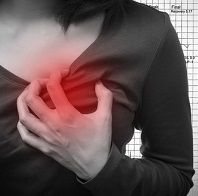Article
Endometriosis Boosts the Risk of Heart Disease
Author(s):
Heart disease is already the number one cause of death in women in the United States, and now a recent study has found that endometriosis is linked to a higher risk of coronary heart disease.

Heart disease is already the number one cause of death in women in the United States, and now a recent study has found that endometriosis is linked to a higher risk of coronary heart disease.
Endometriosis is a painful disorder in which the tissue meant to grow inside the uterus appears on the outside. The connection between heart disease and those with HIV or hepatitis C has been more thoroughly investigated; but in what could be the first study of its kind, researchers from the Brigham and Women’s Hospital in Boston analyzed the link between endometriosis and coronary heart disease.
Data from 116,430 women who were enrolled in the Nurses’ health Study II revealed that 11,903 of them were diagnosed with endometriosis. After 20 years, the researchers looked at the health outcomes in women with and without endometriosis. It turns out that those with the disorder had:
- 1.91 times higher likelihood of developing angina (chest pain)
- 1.52 times higher likelihood of having a heart attack
- 1.35 times higher likelihood to need surgery or stenting to open blocked arteries
One of the most startling parts of this finding is that younger women (ages 40 and younger) with endometriosis were three times more likely to experience these heart issues than younger women without the condition.
- Related: Women Not Worried About Number 1 Killer
Surgical procedures to treat endometriosis, such as uterus or ovaries removal, may contribute to this increase heart disease risk. Inducing menopause through surgery could also elevate the risk, as described in Circulation: Cardiovascular Quality and Outcomes. Regardless, lead author Fan Mu, ScD, formerly from Brigham and Women’s Hospital and Harvard Medical School, said that women need to be aware at the heart risks.
Since endometriosis can only be diagnosed during surgery, it’s only estimated that 6% to 10% of women of reproductive age have the condition.
“It is important for women with endometriosis — even young women – to adopt heart-healthy lifestyle habits, be screened by their doctors for heart disease, and be familiar with symptoms because heart disease remains the primary cause of death in women,” senior author Stacey A. Missmer, ScD, explained in a news release.
Also on MD Magazine >>> Angina in Women Linked to Abnormal Heart Blood Flow





